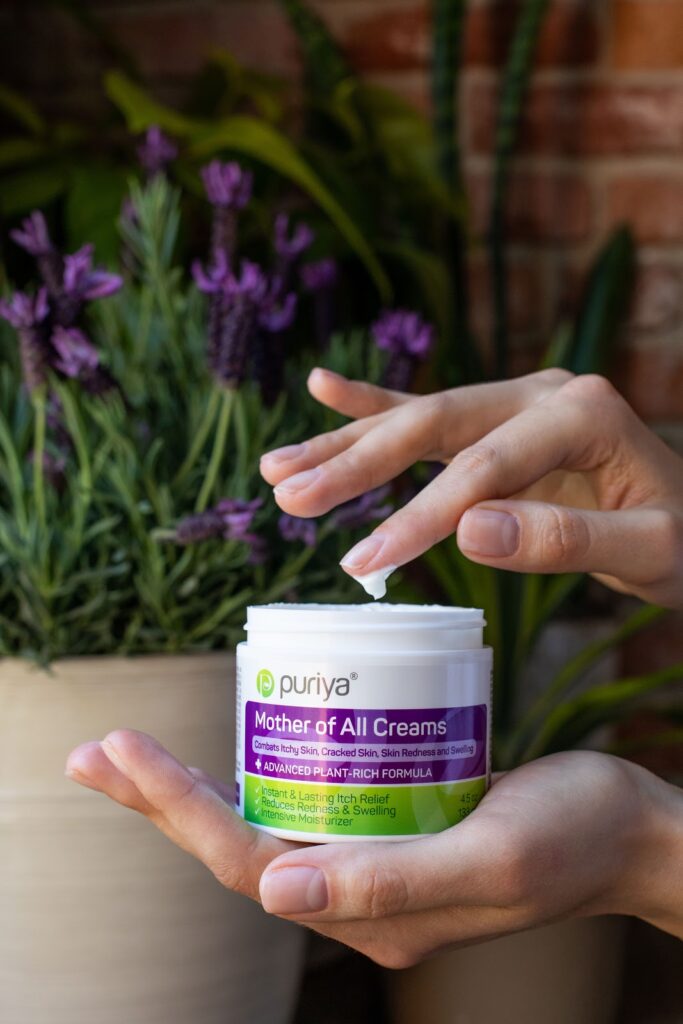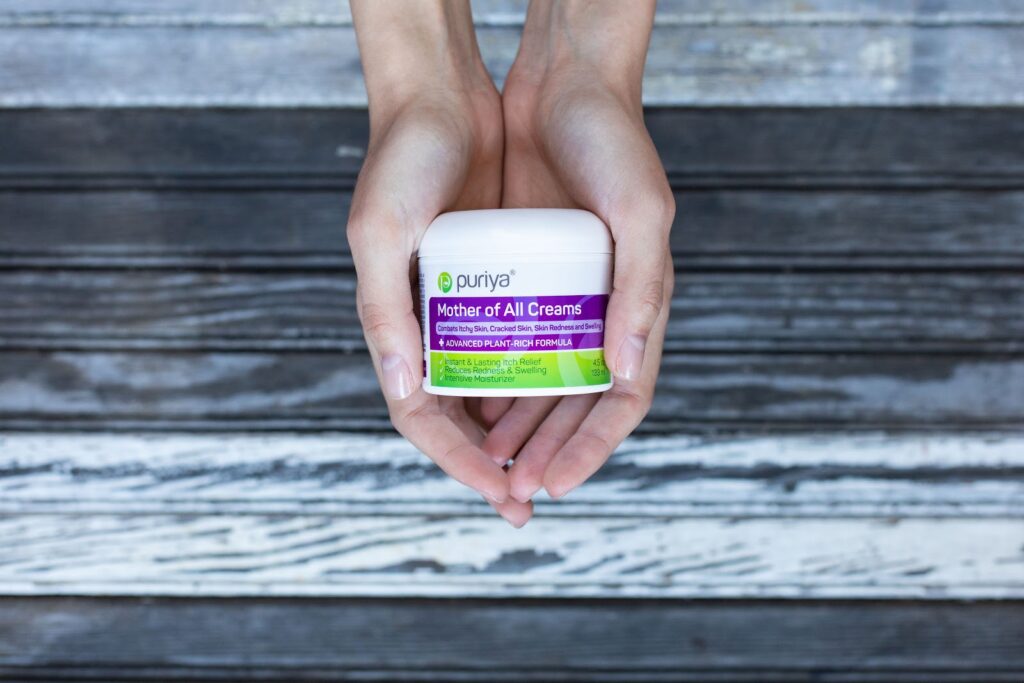

Eczema knows no bounds. The powerful skin condition can affect anyone, virtually anywhere, as long as conditions are present to transform your healthy, hydrated skin into an itchy, scaly, inflamed problem. When most people think of eczema they think of the itchy, uncomfortable rash, and the inflamed skin that makes each day more difficult. In truth, eczema is so much more than a skin-deep problem. Eczema refers to a whole group of conditions that cause the skin to break out into an itchy, scaly rash. This rash often cracks, leaving the body susceptible to infection.
The most common form of eczema is atopic dermatitis; however, many other types of eczema, including contact dermatitis, dyshidrotic eczema, nummular eczema, seborrheic dermatitis and stasis dermatitis, can easily wreak havoc on the skin. Many people who suffer from eczema will suffer from more than one type of eczema during a lifetime.
Overactive Immune System
Researchers are still unsure as to the exact cause of eczema. As of today, there is no known cure. However, medical minds agree that there’s a strong link between the state of your skin and the state of your immune system.
When most people think of the immune system, they imagine a defense system that helps the body fight the cold and the flu. However, the complex network of protective measures against foreign substances governs so much more than a common illness. At the heart of these immune system disorders and autoimmune diseases is inflammation.
Healthy living contributes to healthy skin. That’s why we’ve engineered the perfect complement to your healthy lifestyle, the Mother of all Creams. Learn more about this intensive moisturizer here!

The immune system is triggered when it recognizes something foreign in the body. This causes a process called inflammation, which is how the body can heal itself. Some bouts of inflammation are good, as this is how the body fights illness and disease. Immune system disorders can make the immune system underactive or overactive. In the case of eczema, the immune system is usually overactive. This is where inflammation becomes bad news. When the immune system is overactive and chronic inflammation persists, the body wears down. It’s a case of the body, specifically the immune system, acting a bit over dramatic!
It is important to note that people who experience eczema also experience other autoimmune issues and allergies. In fact, researchers have found that people with an immune system “skewed toward allergies” experience a change in the fats in their skin, leaving the skin itself prone to cracking and inflammation. Studies continue to point to eczema in people with autoimmune disorders, as more and more cases are positively diagnosed.
Here’s the good news: the connection between eczema and autoimmune systems may positively benefit both fields. Specifically, any treatment recommended for autoimmune issues may also stave off bouts of eczema before and after it is triggered.
Understanding Your Triggers
There are many triggers that may cause an eczema flare-up. These triggers often vary from person to person. Triggers may include foods, pollen, chemicals and fabrics. However, due to the close link between eczema and the immune system, a number of preventative measures may lessen your exposure to risk. Because of the link between eczema and the immune system, immune system management should be a key component of an eczema management regimen. As was previously mentioned, managing the immune system will consist mainly of making sure it does not “overreact” and create unnecessary inflammation.
Many people find that lotions and creams, meant to hydrate skin, only irritate the skin more. For this reason, it is important to avoid ingredients that further inflame the skin. While retinol is a popular ingredient in skincare, it can actually irritate the skin.
Harsh preservatives are another enemy of an immune system in overdrive. Stay away from ingredients such as parabens, methylisothiazolinone and formaldehyde-releasing preservatives.
Taming Your Immune System: A Healthy Diet

There are many methods useful for correcting an overactive immune system, one of the most popular being diet realignment. Recent research has shown that the diet can be critical in treating inflammation. Many foods contain anti-inflammatory nutrients.
Foods with anti-inflammatory properties include:
- Tomatoes
- Olive Oil
- Green leafy vegetables
- Blueberries, cherries, oranges
- Fatty fish
- Nuts, such as almonds and walnuts
On the flip side, there are also foods that unfortunately contain components that trigger inflammatory responses. The sensitivity to such components often varies from person to person, and some people are more affected than others.
Common trigger foods include:
- Fried food
- Refined grains such as white bread
- Processed meat
- Soda and other sugary foods
Food-sensitive eczema reactions usually emerge 6-24 hours after consumption. Occasionally, these reactions are delayed even longer. Your doctor may recommend an elimination diet to identify these triggers, where you avoid known trigger foods for an extended period of time and then slowly reintroduce them into your diet, monitoring reactions.
Avoiding foods known to cause inflammatory responses and loading up on anti-inflammatory foods may help prevent an overactive immune system from flaring up and causing an eczema outbreak.
Taming Your Immune System: Other Applications
Histamines alert the immune system to potential threats. Unfortunately, histamine response is sometimes misguided. Many people with allergies take daily or seasonal antihistamines to suppress overactive responses and subdue allergies. Because of their anti-itching effect, some people take them to prevent the itchiness associated with eczema. However, the true effectiveness of this approach has yet to be determined.
For severe cases of eczema, doctors may prescribe an immunosuppressant. An immunosuppressant is a drug that slows down the immune system. Because of their possible side effects, these drugs are typically only prescribed for a few months and then tapered off. They are also considered “off-label” drugs, and so are not approved by the FDA for treating eczema. The most commonly used immunosuppressants are actually used to prevent the body from rejecting transplant organs.
Occasionally, steroids are also used in severe cases of eczema. However, most health care professionals don’t recommend them because of the common “rebound” after use: many people see initial results from steroids only to later see symptoms return even stronger after the medication period has ended.
Taming Your Immune System: Probiotics
As it stands, there is not enough research to support dietary supplements as a sure-fire way of fighting eczema. However, emerging research has shown that the use of pre and probiotics alongside a healthy diet may help temper eczema symptoms. There are a number of probiotic supplements on the market, but they can also be obtained through diet. Fermented foods are common sources of probiotics. Some great probiotic positive foods include:
- Yogurt
- Kefir
- Sauerkraut
- Kimchi
- Miso
- Tempeh
- Kombucha
With a growing body of research in the studies of immunology and auto-immune disorders comes a better understanding of eczema.
A healthy lifestyle with a diet rich in anti-inflammatory foods may help the immune system and prevent eczema flare-ups. However, there is still relief for when it happens. Try our Mother of All Creams, trusted by more than 300,000 families, for soothing tough bouts of eczema.

If you’re suffering from bouts of eczema, you need to know that you’re not alone. We’ve put years of research into the most effective remedy for your eczema, one that not only leaves your skin looking better, but also affects the rest of your body in a plant-rich way. Enter our Mother of All Creams, a powerful moisturizer trusted in hundreds of thousands of households all over the world. There’s a 100% money-back guarantee if for any reason, this cream doesn’t help soothe your eczema. If you’re anything like the rest of our satisfied users, you’ll begin to experience relief after the first topical application.
Welcome to a gentle, non-irritating solution to debilitating eczema symptoms. It’s time you took back the power of your own skin. It’s time you put eczema in its place. Be the help your immune system needs in its fight against eczema!
